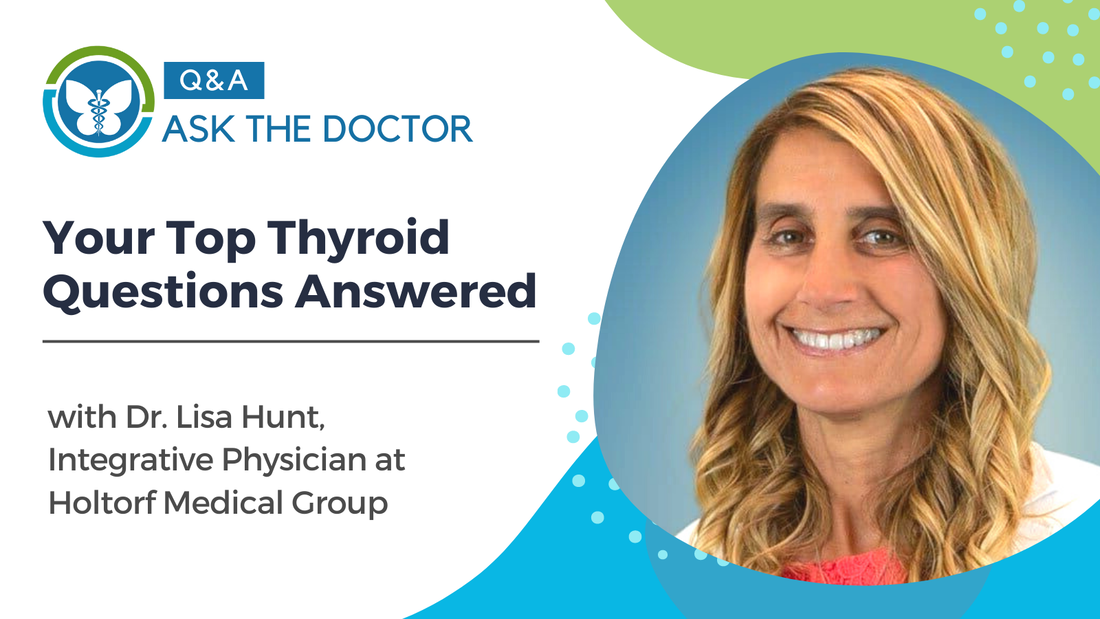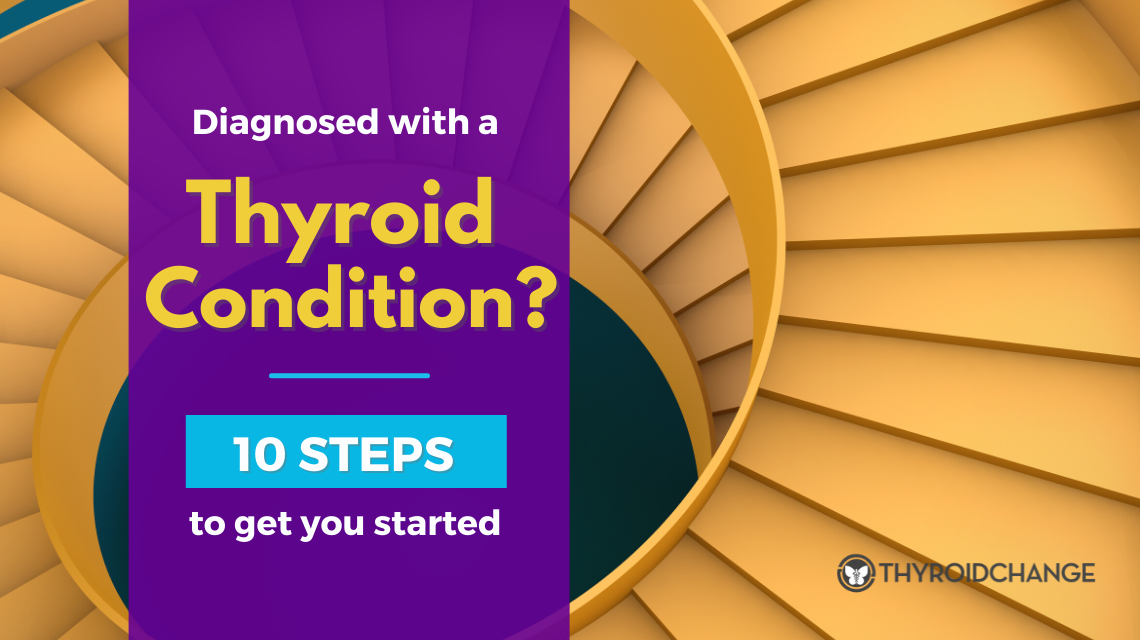14th Jun 2022
Is It ‘The Twilight Zone’ In Thyroid Patient Care?

Unreliable TSH Test
As I had stated previously, TSH has been proven in research to not be a reliable indicator of hypothyroidism. Since it is a pituitary hormone, it only tells the medical professional how the pituitary gland is reacting to thyroid hormones that the gland is sensing in its section of the brain.
What about beyond the pituitary gland? When you rely on TSH, you are making the following assumptions: 1) the pituitary gland is functioning properly 2) that the amount of thyroid hormone by the pituitary gland is similar to the amount of hormone available to the cells and 3) the available hormone is being used by the cell. Anyone reading this knows that these assumptions obviously cause many exceptions to the TSH rule. There are newer tests such as Free T4 (the amount of T4 in the bloodstream ready to be converted), Free T3 (the amount of useable hormone available for cells) and Reverse T3 (wrongly-converted T3 that is dysfunctional and competes with T3 for cell receptors).[7]
These tests are available, but patients find difficulty getting them run even in the face of lingering hypothyroid symptoms. This impacts patients who are T3 deficient at the cellular level whose TSH never raises with this deficiency. Consequently, too many years pass without effective diagnosis. This also happens to patients who are labeled as “euthyroid” or “in-range” while treated with Synthetic T4 even if they have lingering symptoms. The guidelines do not have precautions for these individuals.
Gold-Standard T4 Medication
Synthetic T4 is the best treatment for the treatment of hypothyroidism according to the AACE/ATA. These organizations recommends against the treatment of hypothyroidism with animal derived thyroid hormone because there is a lack of research regarding its effectiveness.[8] Wait. How can you determine that synthetic T4 is the best treatment if there are no comparisons? A lack of research is not proof of ineffectiveness.
There is compelling research that is demonstrating that there is a need for treatment options.[9] Why are these studies being ignored? There is a collection of over 2,300 counterexamples to T4-only treatment due to their improvement with the addition of T3.[10] Recently, a study found that natural desiccated thyroid is a viable treatment option[11], and another publication that states that physicians ignore chronic symptoms of hypothyroidism.[12] One treatment can never fit all patients.
Even if peer-reviewed, credible studies did not exist, the very nature of thyroid physiology demonstrates that T4 is a storage hormone and not usable on the cellular level. Again, T4 is NOT a useable hormone by the body. It must be converted to T3 for use. If you give a patient a hormone that is not readily useable by the body, you are expecting that the individual’s body will make it useable. How can this assumption be made with checking on this with available laboratory tests?[13]
There are many individuals who have TSH that is in range, and feel good on T4. However, there are many others who, due to stress, low iron levels or other reasons and conditions, do not have the ability to convert T4 to T3. These individuals suffer on synthetic T4-only treatment. It is too difficult for the individual patient to gain access to combination treatment when the need for such options is proven in research. No provisions are made for these individuals in the guidelines.
Call For Change in the Guidelines
The vary nature of the word “guidelines” may seem to indicate options and physician discretion, but in societies where medical professionals are brought up on charges (such as those made by the General Medical Council in the UK), or liable for lawsuits for stepping outside of guidelines. Well, then, they feel more like rules. For individuals who are not easily diagnosed or treated by TSH values, for those who do not respond well to T4-only treatment, who is going to help them?
Provisions in the guidelines must be made to support the research-based decisions of some physicians to treat with T3 containing medications and help restore thyroid patient quality of life. Physicians are not provided the resources to treat those who do respond to “typical” treatment. Instead of extended testing, the patient is prescribed more pharmaceuticals for symptoms, which cause more harm than good. How can T3 therapy be more risky than statins, anti depressants, anti-anxiety meds, heart medications, etc?
Thousands of patients are calling attention to this plight. Please read their pleas, and add your own while you sign the patient petition for better care. We need large numbers to demonstrate the worldwide suffering of thyroid patients due to current guidelines. Research supports the need for an evolution in Endocrinology[14]. We need change in thyroid healthcare.
References
[1]http://www.thyroidchange.org/supporting-research.html
[2]http://www.thyroidchange.org/supporting-research.html
[3]http://www.change.org/petitions/endocrinologists-patients-with-thyroid-dysfunction-demand-better-care
[4]http://www.medscape.com/viewarticle/722086_3
[5]https://www.aace.com/files/hypothyroidism_guidelines.pdf
[6]http://www.rcplondon.ac.uk/resources/clinical-resources/diagnosis-and-management-primary-hypothyroidism
[7]http://www.thyroidchange.org/supporting-research.html – TSH
[8]https://www.aace.com/files/hypothyroidism_guidelines.pdf
[9]http://www.thyroidchange.org/supporting-research.html – Additional Treatment
[10]http://tpauk.com/articles/3114-world-register-of-counterexamples-and-triple-counterexamples-to-t4-only-therapy/
[11]http://www.ncbi.nlm.nih.gov/pubmed/23539727
[12]http://www.digitaljournal.com/pr/1333019
[13]www.thyroidchange.org/supporting-research.html#TSH
[14]http://www.thyroidchange.org/supporting-research.html
About the Contributor

Michelle Santonastaso is a Hashimoto’s patient and was one of the co-founders of ThyroidChange. As an instructor in the field of communication and as a mother, Michelle believes continuing education is the key to improving care for all thyroid patients. With her background in speech, interpersonal communication, and healthcare administration, Michelle harnesses her training with an aim to strengthen the voice of ThyroidChange and to maximize its reach.
SIMILAR ARTICLES
More like this...

15th Jun 2022
Your Top Thyroid Questions Answered: Q&A with Dr. Lisa Hunt of Holtorf Medical Group
I had the pleasure of speaking with Lisa Hunt, D.O., an integrative physician at Holtorf Medical Group (www.holtorfmed.com) in El Segundo, CA a short while ago. I polled my audience and your top thyroid-related questions are answered here by Dr. Hunt. Dr. Hunt is a board-certified integrative physician and has extensive experience in thyroid health, hormone replacement, immune dysfunction and chronic conditions.
Read Article
15th Jun 2022
Diagnosed With a Thyroid Condition? 10 Steps to Get You Started
Pursuing proper treatment and an overall healthy lifestyle that includes eating well and exercising can help you manage a thyroid condition. But what else can you do to live well with and thrive with your condition? The information can be overwhelming and Annabel Bateman, thyroid health advocate and author, has created this guide to walk you through essential lifestyle tips once you have been diagnosed.
Read Article
15th Jun 2022
11 Tips On How To Take Your Thyroid Medication Properly
Are you taking your thyroid hormone replacement medication correctly? Did you know that how and when you take your thyroid medication can affect your ability to absorb the necessary hormone properly? In the article below, I investigate the factors that contribute to correctly (or incorrectly) taking thyroid replacement hormone and on how thyroid patients can get the most out of their medication.
Read Article